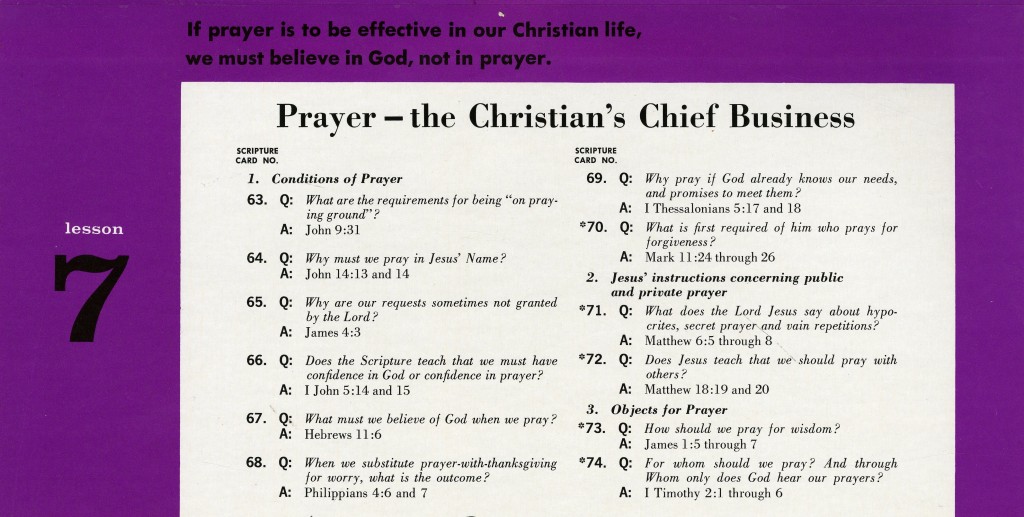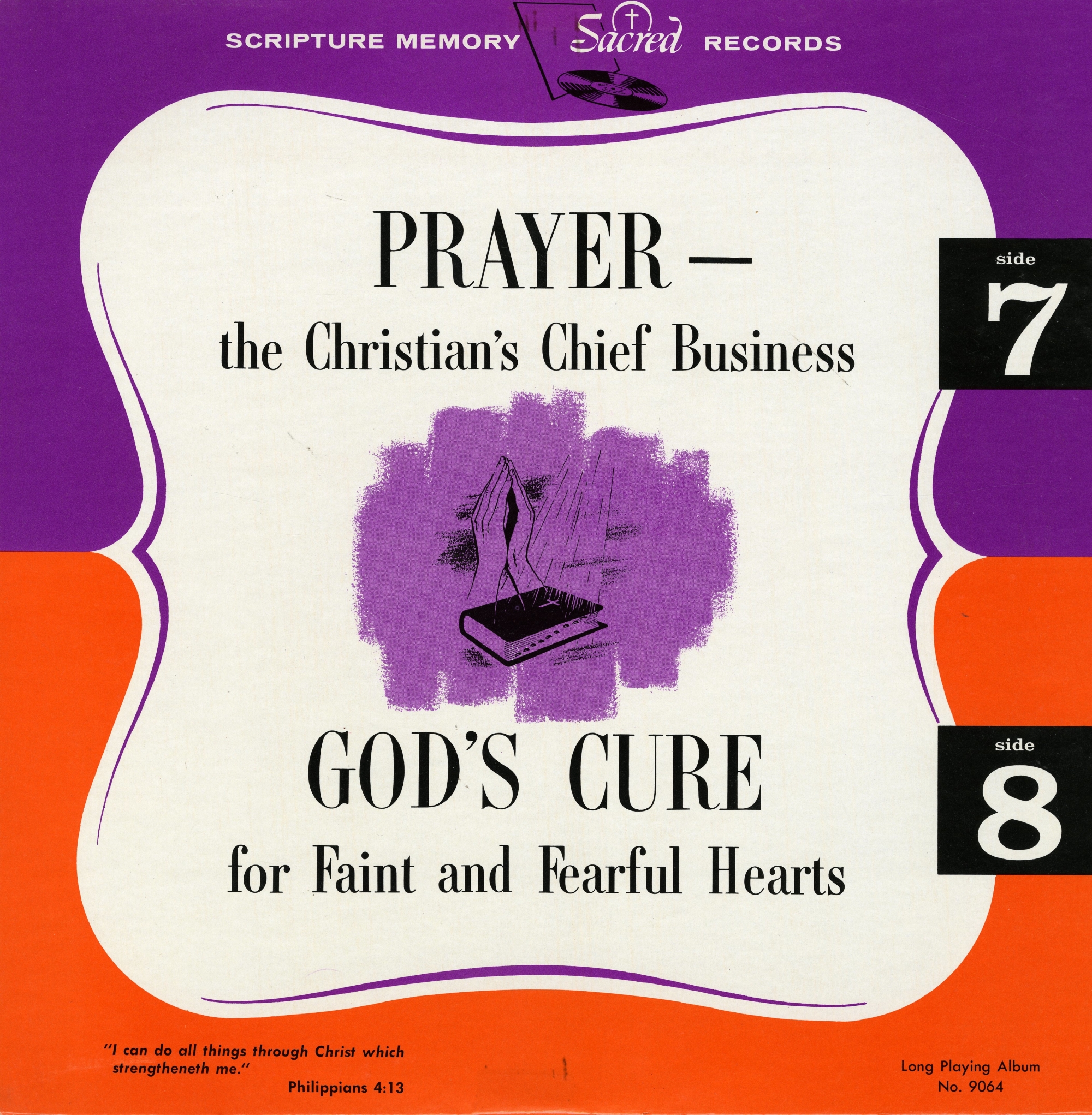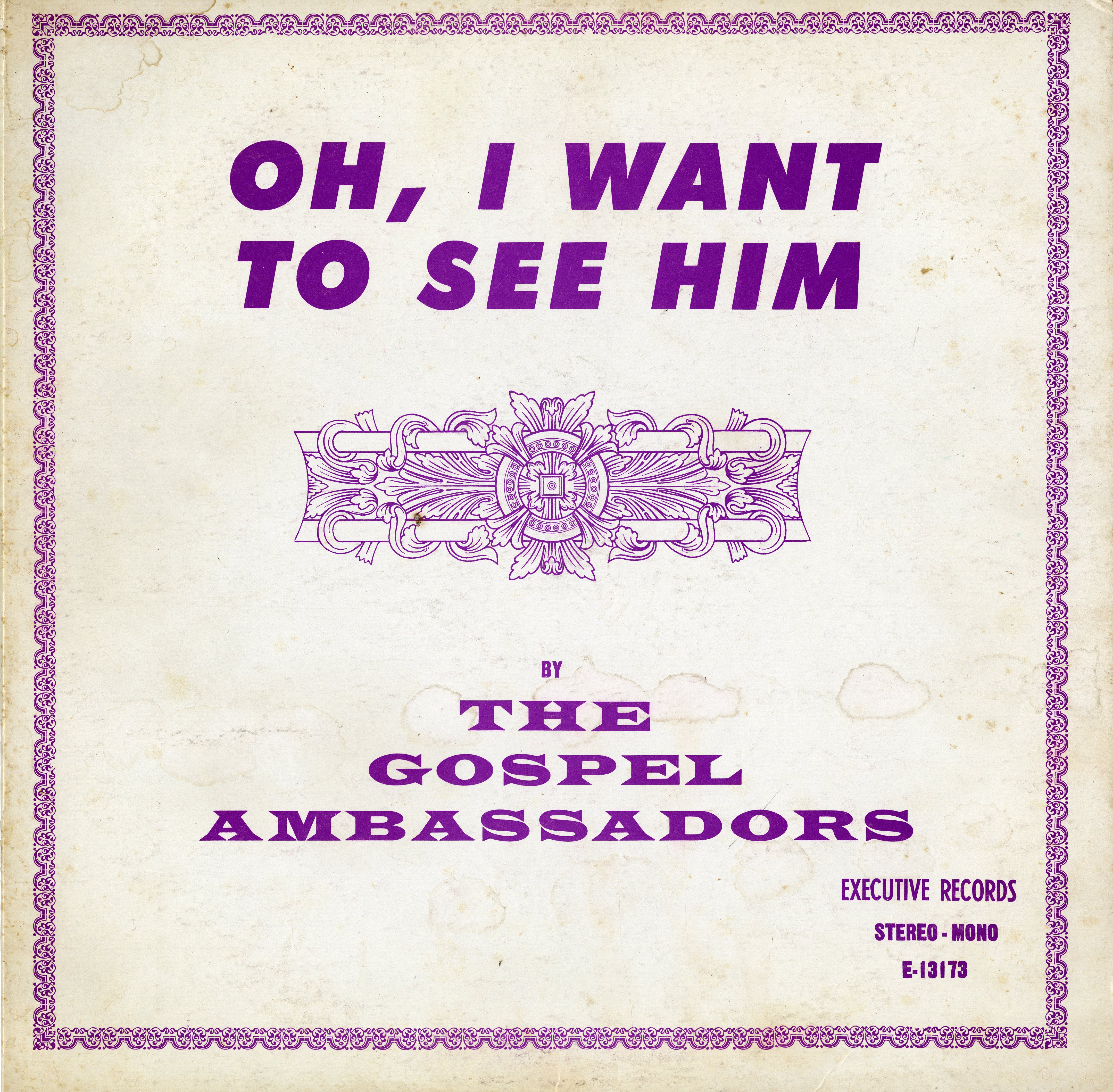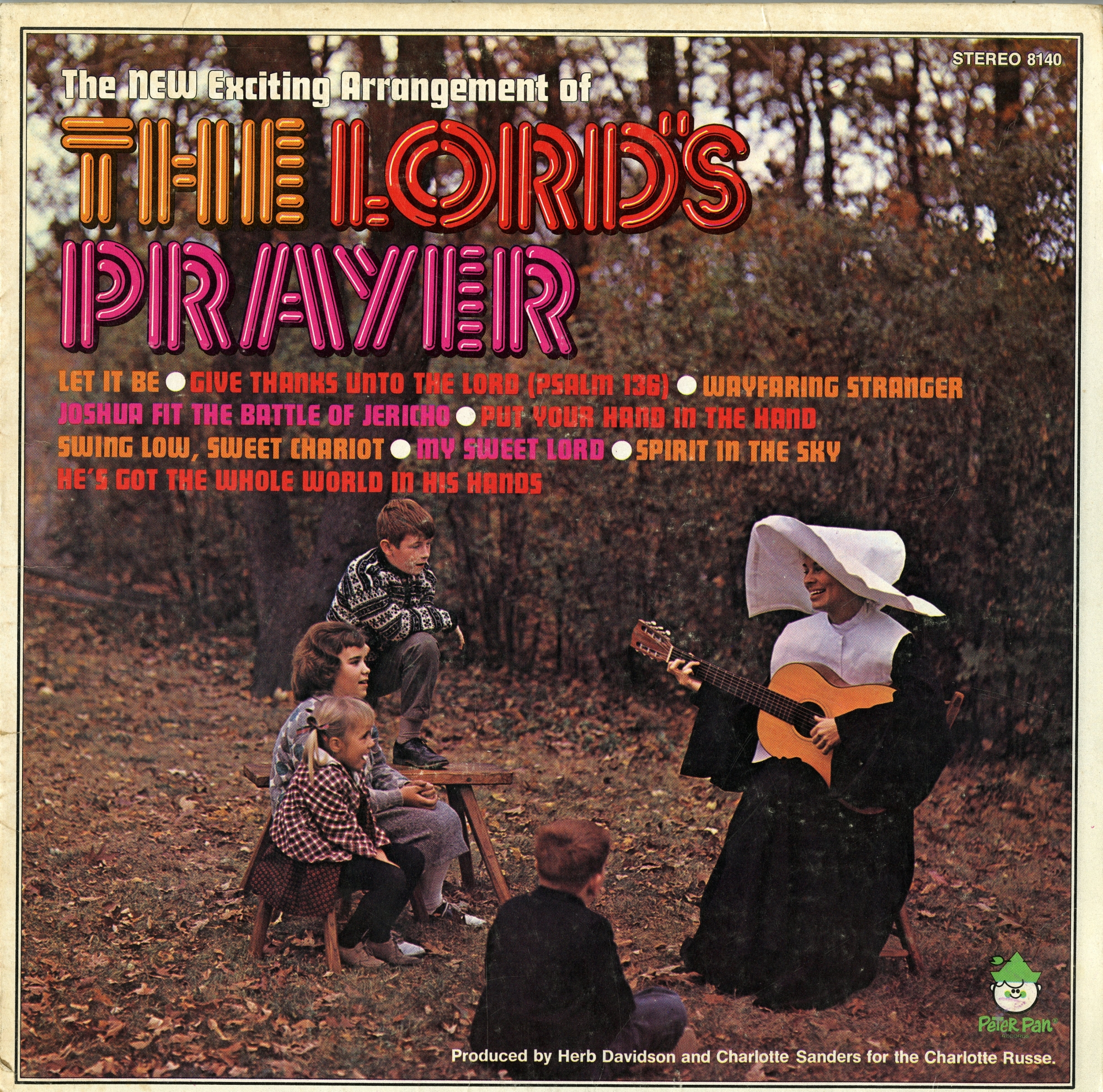In what amounts to mnemonic therapy, the brain is strengthened and the will is chastened in Prayer—The Christian’s Chief Business (Sacred Records). Sacred Records was started by Earle E. Williams in 1944. He was the host of Sunday Sing (originally Highway to Heaven) on KCOP in Los Angeles, which premiered in October of 1956.
Williams was fond of the stentorian voice-over and it is readily apparent in this selection.
We need to know that our praying is well done. We need to know why and how we should pray. We must know the conditions of prayer which God has given in his word, the Bible. So we turn now to the script cards . . . you will need to have your purple pencil.
From start to finish, the narrator guides you through the necessary conditions of prayer and repeatedly assesses your learning outcome. Attention is incited for 20:57. And the stakes are high but never explicitly confirmed. For if you cannot recall, “promptly and accurately,” the conditions of prayerful propriety, well, then, you need to listen again. And again. And again.
Take out your purple pencil.






